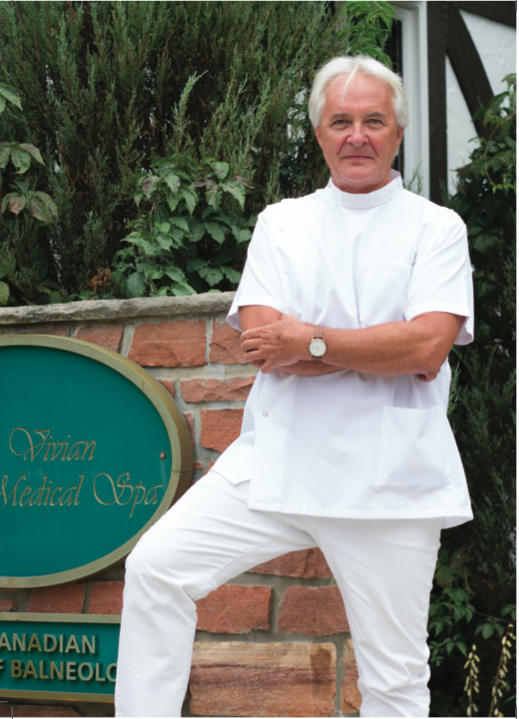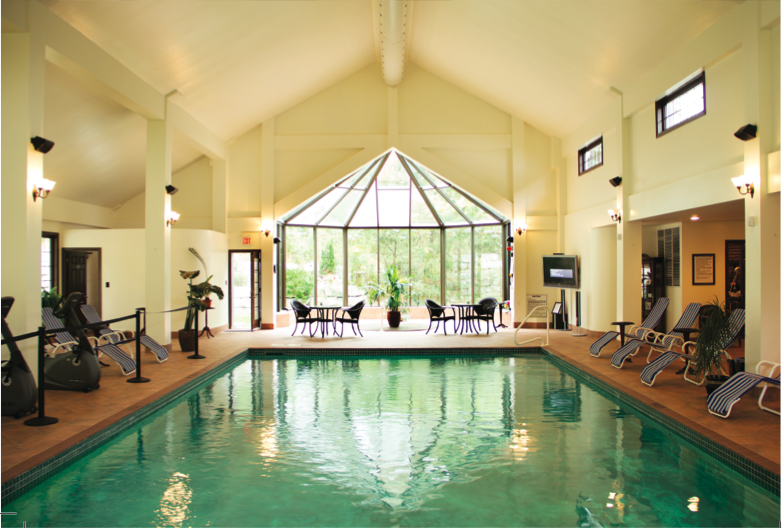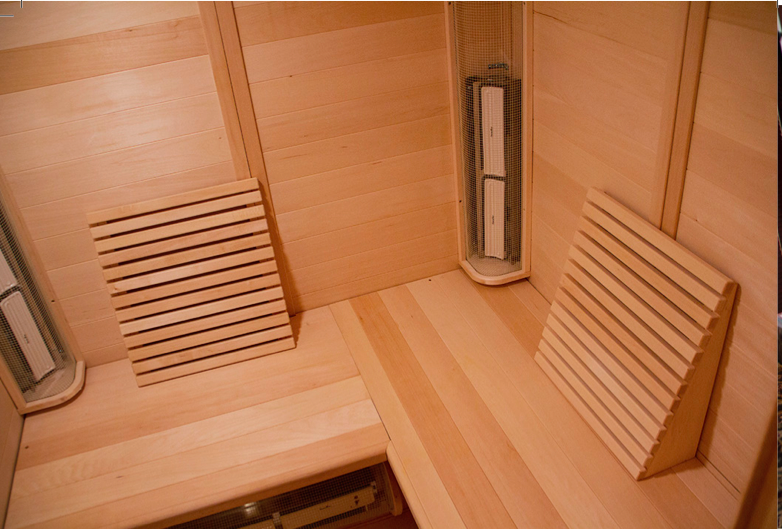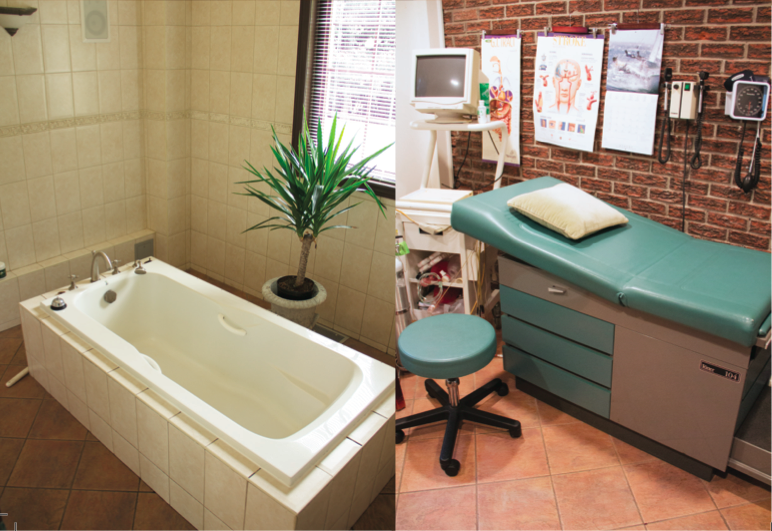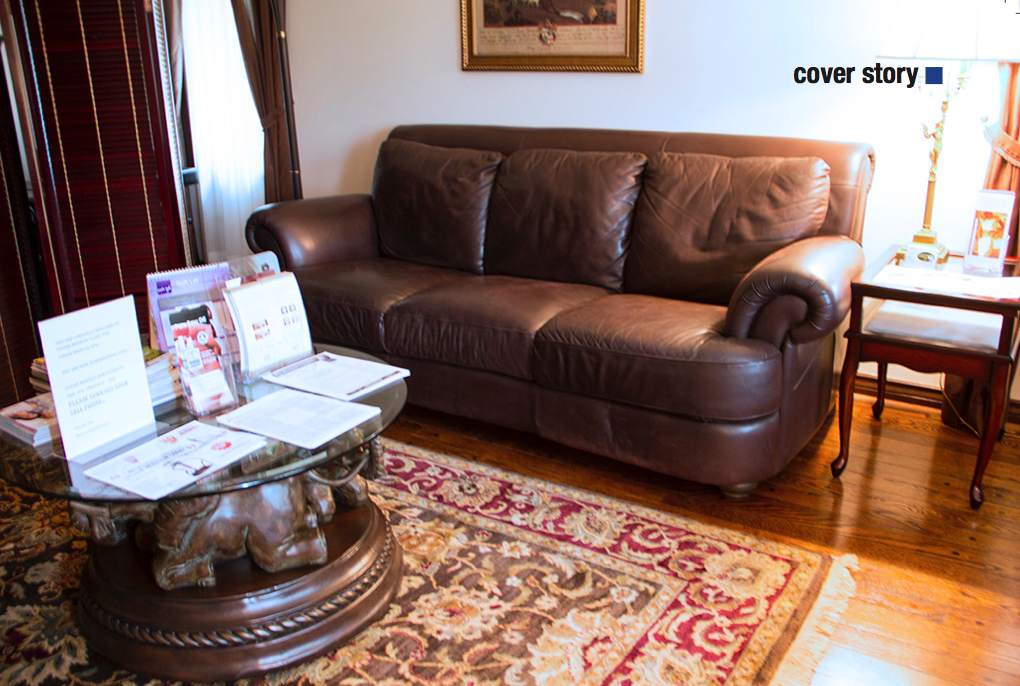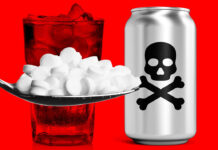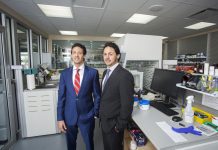The Vivian Medical Spa is a stunning integrative medical facility and European-inspired spa situated 30 minutes northeast of Toronto, in a beautiful home overlooking a 25-acre property. The center offers preventative therapy, anti-aging medical treatments and non-surgical cosmetic aesthetics designed to rejuvenate and optimize health. The medical facility was founded in 2005 by Dr. Andrew Wojcicki MD, whose medical background prior to establishing this center was in orthopedic surgery, internal medicine, gerontology and anti-aging medicine. Dr. Andrew’s wife, Dr. Anna Wojcicka MD, and a team of healthcare professionals work together to customize individual care for their patients and support them in healthy lifestyle change in order to prevent illness and enhance quality of life.
Dr. Andrew Wojcicki, MD
Therapies offered at the facility include bioidentical hormone replacement, detoxification programs, intravenous therapies, non-surgical joint rejuvenation using hyaluronic acid injection therapy and platelet rich plasma (PRP), back decompression therapy, and cold laser. In addition, the center offers a range of physical activities including hiking on its stunning grounds and the use of exercise equipment. Aesthetic therapies offered include botox, fillers, Juvederm, and Lipolaser. Cold laser is a key feature of chronic pain management, while Lipolaser is a cosmetic laser that enhances fat loss and reduction of cellulite.
Detoxification techniques used include Moor mud bath therapy, salt water pools, and infrared sauna. Balnotherapy refers to “bath therapy”, considered to be distinct from hydrotherapy, using a variety of organic solutions or “mud” that contains humic acid, minerals, phytohormones, and other organic substances. More specifically, a recent systematic review defines balnotherapy as “the use of baths containing thermal mineral waters from natural springs at a temperature of at least 20 °C and with a mineral content of at least 1 g/L” (Falagas 2009). At the centre, a typical bath consists of half an hour at 42 °C, based on the physics of the solute. Austrian mud is used for the treatment of pelvic inflammatory disease (PID) as well as prostate disease, for instance.
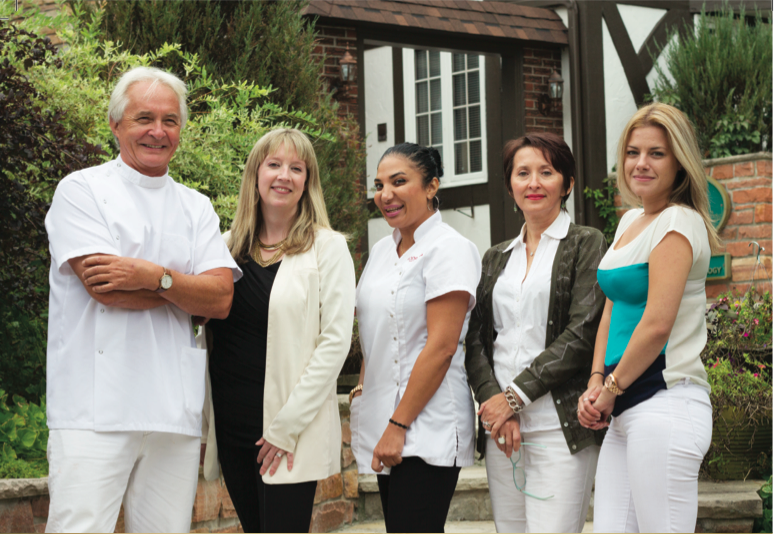
Intravenous therapies include intravenous vitamin C for a range of conditions including adjuvant cancer therapy. For cancer, Dr Wojcicki also utilizes intravenous bicarbonate (HCO3) alongside IVC in in his practice. Dr Wojcicki emphasizes that the facility employs a truly holistic approach in treating patients with cancer. In addition to intravenous therapies, his patients receive counseling regarding diet, with a reduction in refined carbohydrates and an increase in fruits and vegetables recommended as part of an alkalinizing diet. In addition to cancer, Dr Wojcicki uses IVC therapy for patients suffering from fibromyalgia and arthritis, for patients with neurodegenerative disease such as dementia and Parkinsons, as well as in the prevention and treatment of bacterial and viral infections.
For patients with atherosclerosis, intravenous EDTA is used alongside IV phosphatidylcholine (PC). Plaque therapy is the use of essential phospholipids (EPL) extracted from soy. This may be recommended for patients who have suffered a stroke, poor cardiac function, or who have diabetes. Anticipated outcomes from an 10-week program include a reduction in atherosclerotic plaques between 10-60%, reduction in angina pain and frequency, reduction in LDL cholesterol, increase in HDL cholesterol, improvement in cognitive function, improvements in sexual function, and improved exercise tolerance as measured by walking distance. Not unlike a growing number of his colleagues, Dr Wojcicki questions the real usefulness of statins in their role as the universally applied therapy in most conventional medical practices, especially apart from a proper emphasis on the role of diet and lifestyle. IV therapies for liver support include N-acetylcysteine (NAC), glutathione, and phosphatidylcholine (PC).
Dr Wojcicki’s story is an intriguing one: originally an MD in Poland, licensed in 1988, Dr Wojcicki practiced as an orthopedic surgeon for several years prior to immigrating to Canada. At that time, he completed re-training through the University of Toronto and completed a five-year residency in internal medicine and gerontology. He established a private practice in 1996, and became increasingly more interested in a more holistic approach. In particular, he felt dissatisfied with the constraints of medical guidelines, convinced that he should be free to “use my own brain.” Dr Wojcicki believes that the therapeutic application of medicines is all about their mechanism of action and “knowing the molecule”; if you have the biochemical basis for its behaviour, you can apply it intelligently in human systems.
Dr Wojcicki expresses reservations about the pharmaceutical bent present within medicine as it is commonly practiced. He dislikes the mentality that focuses on pharmaceutical drugs first and relegates diet and lifestyle to a secondary role. Treatment and prevention of disease begins with lifestyle, he says, and this is systematically neglected in primary medical care. This is especially problematic in the management of conditions such as obesity and diabetes. Dr Wojcicki relates that he often recommends a gluten and/ or dairy free diet and the avoidance of genetically modified organisms (GMOs), in patients with asthma, allergy, or gastrointestinal problems.
An initial visit with Dr Wojcicki lasts two hours and includes a one hour discussion of lifestyle and diet, as well as a physical exam and thoracic ultrasound. Additional testing that maybe run includes hair heavy metal testing, salivary and blood hormone testing, cancer markers, cardiovascular biomarkers such as ApoB and E, hs-CRP, homocysteine, fibrinogen, and a calculation of the Framingham risk score. The patient receives a medical report regarding current health status and recommendations based on diet, lifestyle, supplements, and hormones. A referral to a specialist is given where indicated.
Dr Wojcicki retains one foot in the conventional model, so to speak. His wife remains as a full time hospitalist at Southlake Hospital (Newmarket, Ontario), and enjoys ongoing involvement there given her own surgical background.
The facility is open to both membership service and walk-in patients. The membership delivers walk-in service for almost free. Walk-in service is based on fee-for-service, with some testing covered by OHIP. Dr Wojcicki estimates that about 20% of his practice is management of chronic disease, while 80% focuses on disease prevention and wellness.
IHP is grateful to Dr Wojciki and the Vivian Medical Spa team for taking the time to introduce us to their impressive facility. Dr Wojciki embodies the true tenants of integrative, holistic, individualized medicine. He serves as a powerful force in the advancement of integrative therapeutics, and his choice of facility marries perfectly with his vision of world-class healthcare.
References
Falagas ME, Zarkadoulia E, Rafailidis PI. The therapeutic effect of balneotherapy: evaluation of the evidence from randomised controlled trials. Int J Clin Pract. 2009 Jul;63(7):1068-84.
Andrew Wojciki, MD :Chief Medical Officer Brandy Kinner: Director Sheila Sanchez Silverio, MSc: Clinic Manager Krystyna Mlodzianowska: Medical Assistant Carly Andrews: Reception Tetyana Nakonechna: Aesthetician